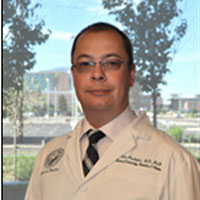ThyCa Awards 6 Thyroid Cancer Research Grants
07/2016July 11, 2016—ThyCa: Thyroid Cancer Survivors’ Association, Inc. is proud to announce it has awarded six grants for thyroid cancer research into complex aspects of all types of thyroid cancer: papillary, follicular, medullary, and anaplastic thyroid cancer.
New ThyCa grants were awarded to physician researchers at Harvard Medical School and Brigham and Women’s Hospital, Boston, Massachusetts, Massachusetts General Hospital, Boston, Massachusetts, and the University of Colorado, Aurora, Colorado.
In addition, ThyCa second-year grants were awarded to researchers at Harvard Medical School/Massachusetts General Hospital, Boston, Massachusetts; University of Texas Southwestern, Dallas, Texas; and Phoenix VA Health Care System, Phoenix, Arizona.
This is the 14th consecutive year that ThyCa has awarded research grants. ThyCa has awarded 60 grants for thyroid cancer research, to researchers in 6 countries, to advance progress toward ThyCa’s goal of cures for all thyroid cancer.
The grants are all funded through donations to ThyCa from thyroid cancer patients, family members, and friends.
ThyCa grants are open to researchers and institutions worldwide. An independent expert panel of the American Thyroid Association (ATA) reviewed applications and selected the recipients. Details on past grants and ThyCa’s Rally for Research are here.
Recipients of the new ThyCa grants are:
 Trevor Angell, M.D., Harvard Medical School, and Brigham and Women’s Hospital, Boston, Massachusetts, for the project titled“Assessment of Circulation Immune Suppressor Cells for Predicating Treatment Response in Follicular Cell Derived Thyroid Carcinoma.” This project notes that myeloid derived suppressor cells (MDSC) prevent anti-tumor immune responses and, while rare in healthy individuals, accumulate in the setting of cancer. MDSC are elevated in the peripheral blood of patients with both papillary thyroid cancer and anaplastic thyroid cancer. Levels before thyroidectomy correlate with cancer stage and pathologic invasion and/or lymph node metastasis. In this study, prospectively enrolled patients will have peripheral blood MDSC measured before and after therapy for thyroid cancer. This will permit the examination of its role providing new personalized data to patients and their doctors to determine whether the cancer is present or spreading after treatment, in order to aid decisions about treatment or monitoring.
Trevor Angell, M.D., Harvard Medical School, and Brigham and Women’s Hospital, Boston, Massachusetts, for the project titled“Assessment of Circulation Immune Suppressor Cells for Predicating Treatment Response in Follicular Cell Derived Thyroid Carcinoma.” This project notes that myeloid derived suppressor cells (MDSC) prevent anti-tumor immune responses and, while rare in healthy individuals, accumulate in the setting of cancer. MDSC are elevated in the peripheral blood of patients with both papillary thyroid cancer and anaplastic thyroid cancer. Levels before thyroidectomy correlate with cancer stage and pathologic invasion and/or lymph node metastasis. In this study, prospectively enrolled patients will have peripheral blood MDSC measured before and after therapy for thyroid cancer. This will permit the examination of its role providing new personalized data to patients and their doctors to determine whether the cancer is present or spreading after treatment, in order to aid decisions about treatment or monitoring.
Dr. Angell is an Instructor in Medicine at Harvard Medical School and is on the staff of Brigham and Women’s Hospital. He is a graduate of the Keck School of Medicine at the University of Southern California in Los Angeles, where he also completed a residency followed by a fellowship in which he focused on mechanisms of immune suppression in thyroid cancer.
 Viswanath Gunda, Ph.D., Massachusetts General Hospital, Boston, Massachusetts, for the project titled “Combining Immune Checkpoint Inhibitors with BRAF Targeted Therapy in Thyroid Cancer.” The research seeks to understand the role of immune checkpoint receptors, PD-1/PD-L1 in thyroid cancer combinatorial and to combine therapies of these inhibitors with MAPKinase inhibitors (BRAF and MEK proteins) and multi-kinase VEGFR inhibitors to examine their synergistic effect on the treatment of aggressive thyroid cancer and their mechanism of action, with a focus on immune system interactions. The research aims to establish a firm base of preclinical data to support clinical trials using immunotherapies to treat patients with aggressive thyroid cancer.
Viswanath Gunda, Ph.D., Massachusetts General Hospital, Boston, Massachusetts, for the project titled “Combining Immune Checkpoint Inhibitors with BRAF Targeted Therapy in Thyroid Cancer.” The research seeks to understand the role of immune checkpoint receptors, PD-1/PD-L1 in thyroid cancer combinatorial and to combine therapies of these inhibitors with MAPKinase inhibitors (BRAF and MEK proteins) and multi-kinase VEGFR inhibitors to examine their synergistic effect on the treatment of aggressive thyroid cancer and their mechanism of action, with a focus on immune system interactions. The research aims to establish a firm base of preclinical data to support clinical trials using immunotherapies to treat patients with aggressive thyroid cancer.
Dr. Gunda is an Instructor in Cell Biology at Massachusetts General Hospital committed to translational research in thyroid cancer. A graduate of Sri Ramachandra University in India with high distinction, he completed his Ph.D. dissertation in Molecular Endocrinology, followed by a fellowship at the University of Utah. Next, he joined the staff of Massachusetts General Hospital as a Research Fellow, where he has worked with Dr. Sareh Parangi, is a previous ThyCa research award winner. Dr. Gunda also coordinates the Endocrine Tumor Repository in the Surgery department at Massachusetts General Hospital.
 Nikita Pozdeyev, M.D., Ph.D., University of Colorado, Aurora, Colorado,for the project titled “Rational combination therapies with lenvatinib for advanced thyroid cancer.” This grant is the Ric Blake Memorial Thyroid Cancer Research Grant. This project aims to develop rational drug combinations with lenvatinib to further improve the efficacy of systemic treatment for advanced progressivethyroid cancer. This multidisciplinary project combines functional genomics, high-throughput pharmacology, and bioinformatics to identify drugs and drug targets that will have synergistic anti-proliferative effects in combination with lenvatinib on thyroid cancer cells. The study will directly assess 240 clinically-relevant compounds and molecular probes for the synergy with lenvatinib. The drug combinations will be validated through in vitro and mouse models of thyroid cancer with an ultimate goal of testing this combination therapy in rationally-designed clinical trials.
Nikita Pozdeyev, M.D., Ph.D., University of Colorado, Aurora, Colorado,for the project titled “Rational combination therapies with lenvatinib for advanced thyroid cancer.” This grant is the Ric Blake Memorial Thyroid Cancer Research Grant. This project aims to develop rational drug combinations with lenvatinib to further improve the efficacy of systemic treatment for advanced progressivethyroid cancer. This multidisciplinary project combines functional genomics, high-throughput pharmacology, and bioinformatics to identify drugs and drug targets that will have synergistic anti-proliferative effects in combination with lenvatinib on thyroid cancer cells. The study will directly assess 240 clinically-relevant compounds and molecular probes for the synergy with lenvatinib. The drug combinations will be validated through in vitro and mouse models of thyroid cancer with an ultimate goal of testing this combination therapy in rationally-designed clinical trials.
Dr. Pozdeyev is an Instructor in the Department of Medicine at the University of Colorado and will be promoted to Assistant Professor in July 2016. His research focuses on the study of pharmacogenomics relationships in thyroid cancer and the development of rational combination therapies for progressive metastatic thyroid cancer. A graduate of Saint Petersburg Pavlov State Medical University in Russia, he completed internship and residency programs at MedStar Harbor Hospital Center in Maryland, and a fellowship at the University of Colorado.
ThyCa also awarded continuation grants for 2016 for a second year of a two-year grant, to these researchers:
 Carrie Lubitz, M.D., M.P.H., Harvard Medical School/Massachusetts General Hospital, Boston, Massachusetts, is the recipient of the 2015 Ric Blake Memorial Thyroid Cancer Research Grant, named for ThyCa Co-Founder Ric Blake. Dr. Lubitz’s research is examining the clinical utility and cost-effectiveness of a novel blood-based assay for circulating BRAFV600E mutation in patients with papillary thyroid cancer, in order to enhance risk stratification, and identify patients who are likely to benefit from more aggressive interventions, in order to enable more targeted and efficient care. Dr. Lubitz completed her medical training at the University of Michigan Medical School, followed by further training at Weill-Cornell Medical College, and through the National Cancer Institute-sponsored Program in Cancer Outcomes Research Training, as well as earning her Master’s Degree in Public Health at the Harvard School of Public Health.
Carrie Lubitz, M.D., M.P.H., Harvard Medical School/Massachusetts General Hospital, Boston, Massachusetts, is the recipient of the 2015 Ric Blake Memorial Thyroid Cancer Research Grant, named for ThyCa Co-Founder Ric Blake. Dr. Lubitz’s research is examining the clinical utility and cost-effectiveness of a novel blood-based assay for circulating BRAFV600E mutation in patients with papillary thyroid cancer, in order to enhance risk stratification, and identify patients who are likely to benefit from more aggressive interventions, in order to enable more targeted and efficient care. Dr. Lubitz completed her medical training at the University of Michigan Medical School, followed by further training at Weill-Cornell Medical College, and through the National Cancer Institute-sponsored Program in Cancer Outcomes Research Training, as well as earning her Master’s Degree in Public Health at the Harvard School of Public Health.  Sarah Oltmann, M.D., University of Texas Southwestern, Dallas, Texas, is researching medullary cancer progression and therapeutic response in a unique mouse model, with emphasis on increasing understanding of the natural history of metastatic disease and responses to treatment with tyrosine kinase inhibitors. Dr. Oltmann earned her medical degree at Texas Tech University Health Science Center, with further training at the University of Texas Southwestern Medical Center and the University of Wisconsin.
Sarah Oltmann, M.D., University of Texas Southwestern, Dallas, Texas, is researching medullary cancer progression and therapeutic response in a unique mouse model, with emphasis on increasing understanding of the natural history of metastatic disease and responses to treatment with tyrosine kinase inhibitors. Dr. Oltmann earned her medical degree at Texas Tech University Health Science Center, with further training at the University of Texas Southwestern Medical Center and the University of Wisconsin. Ming Li, M.D., Ph.D., Phoenix VA Healthcare System, Phoenix, AZ, is conducting research on “The Genetic Basis of Advanced Differentiated Thyroid Cancer by Forward Genetics Screening with Thyroid-specific Random Transposon Insertional Mutagenesis.” Dr. Ming Li completed his medical training at Beijing Medical University, Beijing, China, earned his Ph.D. at Baylor College of Medicine, and received further medical training at the University of Minnesota. He is now staff physician and assistant professor at the Phoenix VA Healthcare System, where his focus is thyroid cancer.
Ming Li, M.D., Ph.D., Phoenix VA Healthcare System, Phoenix, AZ, is conducting research on “The Genetic Basis of Advanced Differentiated Thyroid Cancer by Forward Genetics Screening with Thyroid-specific Random Transposon Insertional Mutagenesis.” Dr. Ming Li completed his medical training at Beijing Medical University, Beijing, China, earned his Ph.D. at Baylor College of Medicine, and received further medical training at the University of Minnesota. He is now staff physician and assistant professor at the Phoenix VA Healthcare System, where his focus is thyroid cancer.
